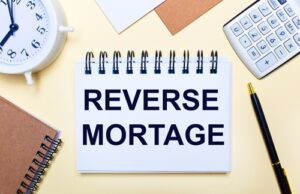
A reverse mortgage gives homeowners the chance to access home equity without selling or moving out. However, many people hesitate to take this route because they worry about leaving a financial burden behind. Often, they assume their heirs will become responsible for the reverse mortgage debt. That fear is understandable, yet it doesn’t reflect how these loans actually work.
Right from the start, it’s helpful to know that a reverse mortgage protects both the homeowner and their heirs. While the debt eventually needs repayment, the responsibility doesn’t fall personally on family members. Instead, the home itself secures the loan, and there are clear guidelines for what happens next.
Understanding the Basics of a Reverse Mortgage
To make smart decisions, it’s useful to understand how a reverse mortgage functions. These loans allow older homeowners to borrow against the equity in their home. While they receive funds during their lifetime, they don’t need to make monthly payments. As a result, the balance grows over time.
Eventually, the loan becomes due. This typically happens when the borrower sells the home, moves into long-term care, or passes away. At that point, the reverse mortgage must be settled.
What Happens After the Borrower Passes Away?
After the borrower dies, the lender sends a formal notice to the estate. This notice indicates that the reverse mortgage is now due and payable. However, that doesn’t mean the borrow will loose the home or that heirs must panic. Instead, they will have choices for how to move forward.
For example, heirs in Colubmia SC can choose to:
- Sell the property and use the proceeds to pay off the reverse mortgage
- Keep the home and repay the loan through other means, such as a new mortgage
- Transfer the deed to the lender and walk away with no further obligation
At this stage, staying in touch with the lender is important. If heirs communicate their plans, they may receive an extension while they make their decisions. Therefore, it’s always better to respond rather than ignore the letter.
Are Heirs Personally Responsible for Reverse Mortgage Debt?
No, heirs are not personally responsible for the reverse mortgage debt. While they need to repay the loan, it is attached to the home—not to the individuals who inherit it. Because of that, the lender cannot require heirs to pay the loan from their own savings or assets.
Even so, there are still a few things to keep in mind. Until the loan is resolved, property taxes, insurance, and basic upkeep must continue. If these aren’t handled, the condition of the home could suffer, which affects its value.

How Non-Recourse Loans Protect Families
A reverse mortgage is usually a non-recourse loan. This type of loan limits the lender’s recovery to the value of the home. In other words, if the house is worth less than the outstanding loan balance, the lender takes the loss—not the estate and not the heirs.
Let’s say the reverse mortgage balance is $250,000, but the home sells for only $200,000. Because the loan is non-recourse, the lender cannot pursue anyone for the remaining $50,000. That shortfall is absorbed by the mortgage insurance, which is part of how the loan is structured from the start.
On the flip side, if the home sells for more than what’s owed, the estate keeps the leftover equity. This benefit is often misunderstood, yet it makes a big difference when evaluating whether to move forward with a reverse mortgage.
Can Heirs Keep the Home Instead of Selling It?
Yes, they can. While selling the home is one option, it’s not the only one. Heirs may decide they want to keep the property. If so, they simply need to repay the reverse mortgage balance. This can be done with available funds or through financing, such as a traditional mortgage loan.
This path works best if the heirs have a personal attachment to the home or see it as a valuable asset. Still, they should act quickly. The lender won’t wait forever, so starting the process soon after receiving notice helps avoid complications.
When Should Heirs Consider Walking Away?
Sometimes, the home’s value may not justify the cost of keeping it. If that’s the case, heirs may choose to sign over the deed to the lender. By doing so, they will no longer have any obligation. Since the loan connects to the house, not the people, there’s no impact on their personal finances or credit.
Although this choice may feel emotional, it’s a valid option when the numbers don’t add up. Because of the non-recourse nature of a reverse mortgage in Columbia SC, this route provides closure without extra stress.
Communication Makes a Big Difference
One of the most important steps heirs can take is to communicate with the loan servicer. When questions come up or decisions feel overwhelming, reaching out for clarity can make all the difference. Often, servicers offer support or timeline flexibility, especially when they see cooperation.
For that reason, ignoring letters or avoiding phone calls is not a good idea. The more engaged the heirs are, the smoother the process tends to go.
How to Plan Ahead for a Smooth Transition
Although heirs don’t inherit the debt personally, preparing ahead can still help. Homeowners considering a reverse mortgage should talk with their family. These conversations allow everyone to understand what will happen later and prevent misunderstandings.
Additionally, documenting preferences in a will or estate plan provides even more guidance. For example, stating that a particular heir can buy the home helps avoid family disagreements later on.
Reverse Mortgage Doesn’t Mean Leaving a Burden
Reverse mortgages have lots of misconceptions. While the loan does become due when the borrower dies, heirs don’t need to worry about the bill. Instead, they’re given several options and time to make a decision. Since the loan is non-recourse, the lender’s rights stop at the property itself. Consult Reverse Mortgage Specialist for more details.
Overall, a reverse mortgage can be a helpful tool for accessing home equity during retirement. And when used wisely, it doesn’t create problems for the next generation. In fact, it often allows homeowners to live more comfortably while keeping options open for their family later.
Call Reverse Mortgage Specialist now to find out how a reverse mortgage could fit into your long-term financial plan.
